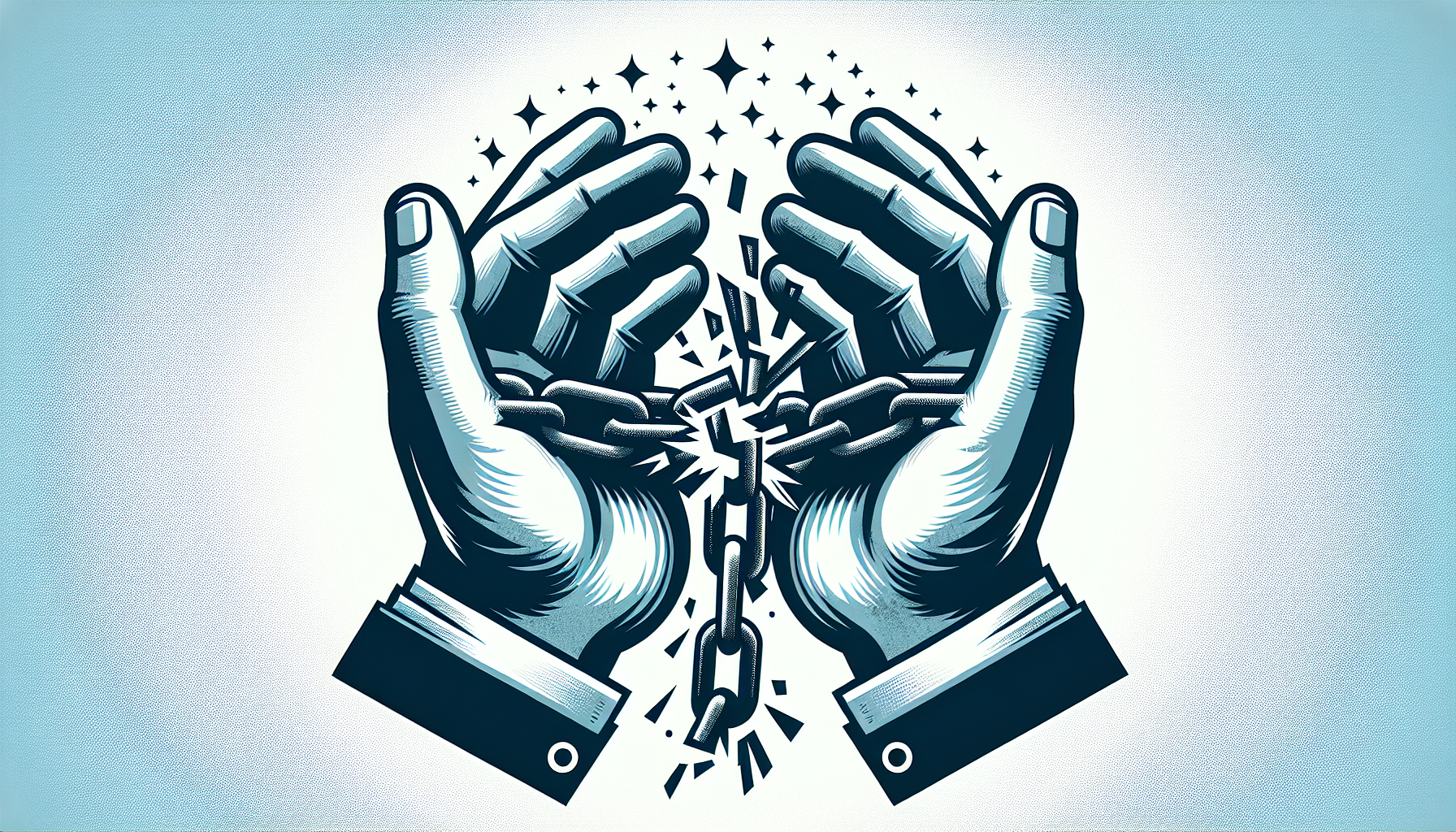Finding the right financial support can be a challenging task, especially when you have bad credit. But worry not, because there are direct lenders out there who understand your situation and are ready to help. In this article, we will explore the world of direct lenders for bad credit and how they can provide you with the financial assistance you need. Whether you’re looking for a personal loan, a car loan, or even a mortgage, these direct lenders are here to make the process easier and more accessible for you. So let’s dive in and discover how these lenders can turn your bad credit situation around. If you’re falling short, then you can consider money solutions from Wealthy Wellness Guide
Understanding Bad Credit
What is bad credit?
Bad credit refers to a low credit score that indicates a person’s history of not repaying debts or consistently making late payments. This can make it challenging for individuals to obtain loans or credit cards, as lenders view them as high-risk borrowers. Bad credit is usually a result of financial mismanagement, such as excessive debt, late payments, foreclosure, or bankruptcy. If you’re falling short, then you can consider money solutions from Wealthy Wellness Guide
Causes of bad credit
There are various factors that can contribute to bad credit. One common cause is the inability to make timely payments on debts, such as credit card bills, mortgages, or personal loans. Accumulating too much debt and having a high credit utilization ratio can also lead to bad credit. Other factors that can impact credit scores include defaults on loans, foreclosures, and bankruptcies.
Effects of bad credit on loan eligibility
Having bad credit can significantly affect one’s ability to obtain loans. Traditional lenders, such as banks, are often hesitant to lend money to individuals with bad credit due to the increased risk of default. Even if loans are approved, borrowers with bad credit may face higher interest rates and stricter repayment terms. Their loan options may be limited, and they may be required to provide collateral or have a co-signer to secure the loan.
Direct Lenders for Bad Credit: An Overview
Who are direct lenders?
direct lenders for bad credit are financial institutions or lenders that provide loans directly to individuals with poor credit scores. They do not rely on intermediaries, such as brokers or loan aggregators, to connect them with borrowers. These lenders specialize in working with individuals who have bad credit, offering them loan options that traditional lenders may not provide.
Advantages of direct lenders for bad credit
Working with direct lenders for bad credit can offer several advantages. Firstly, they often have a simplified application process, allowing borrowers to apply for loans online and receive a quick response. They are also more lenient with credit scores, offering loan options to individuals with a wide range of credit histories. Additionally, direct lenders may provide more flexible repayment terms and lower interest rates compared to other loan options available to individuals with bad credit.
Types of loans offered by direct lenders
Direct lenders for bad credit typically offer a variety of loan options tailored to meet the needs of borrowers with poor credit. These may include personal loans, installment loans, payday loans, or even specialized bad credit auto loans. The loan amounts and repayment terms can vary depending on the lender’s policies and the borrower’s specific financial situation. If you’re falling short, then you can consider money solutions from Wealthy Wellness Guide
Researching Direct Lenders for Bad Credit
Identifying reputable direct lenders
When researching direct lenders for bad credit, it is crucial to identify reputable and trustworthy lenders. Look for lenders that are licensed and regulated by the appropriate financial authorities. You can also check if they are members of reputable industry associations. Reading customer reviews and testimonials can also provide insights into the lender’s reputation and customer service.
Checking for customer reviews and ratings
Customer reviews and ratings can be valuable sources of information when researching direct lenders for bad credit. They can give you an idea of other borrowers’ experiences with the lender, including their satisfaction with the loan process, customer service, and repayment terms. Look for lenders with positive reviews and high ratings, as this indicates a higher likelihood of a positive experience.
Comparing interest rates and terms
Before deciding on a particular direct lender, it’s important to compare the interest rates and terms offered. Different lenders may have varying interest rates, fees, and repayment options. Collect quotes from multiple lenders and carefully analyze the terms to determine which one offers the most favorable conditions. Pay attention to the APR (Annual Percentage Rate), as it includes both the interest rate and any additional fees or charges associated with the loan.
Eligibility Requirements for Bad Credit Loans
Minimum credit score requirements
Direct lenders for bad credit typically have more lenient credit score requirements compared to traditional lenders. While there is no specific minimum credit score, borrowers with very low credit scores may face higher interest rates and more stringent repayment terms. It’s essential to review the lender’s eligibility criteria to understand their credit score expectations and determine if you meet their requirements.
Proof of income and employment
To qualify for a bad credit loan, borrowers are usually required to provide proof of income and employment. This is an important factor for lenders to assess the borrower’s ability to repay the loan. The income can come from various sources, such as employment, self-employment, or government assistance. Documentation such as pay stubs, tax returns, or bank statements may be requested by the lender as proof of income.
Collateral or co-signer options
In some cases, direct lenders for bad credit may require collateral or a co-signer to secure the loan. Collateral is an asset, such as a car or property, that can be seized by the lender if the borrower fails to repay the loan. Having a co-signer with good credit can also increase the chances of loan approval, as it provides an additional layer of security for the lender.
Applying for Bad Credit Loans
Gathering necessary documentation
Before applying for a bad credit loan, gather the necessary documentation to streamline the application process. This may include identification documents, proof of income, employment verification, bank statements, and any other documentation specified by the lender. Having all the required documents readily available can help expedite the loan application process. If you’re falling short, then you can consider money solutions from Wealthy Wellness Guide
Completing the loan application
Once you have gathered the necessary documentation, complete the loan application accurately and honestly. Provide all the required information, including personal details, financial information, and loan amount requested. Be prepared to answer questions regarding your credit history and employment status. Double-check the application for any errors or omissions before submitting it to the lender.
Submitting the application and waiting for approval
After completing the loan application, submit it to the direct lender for review. The lender will evaluate your application, including your credit history, income, and employment details. They may also conduct a credit check and verify the information provided. The approval process may take anywhere from a few minutes to a few days, depending on the lender’s policies and workload. Once approved, the lender will provide the loan terms and conditions for your review.
Understanding Loan Terms and Conditions
Interest rates and APR
Loan interest rates determine the cost of borrowing and are usually calculated as an annual percentage rate (APR). Direct lenders for bad credit typically charge higher interest rates to compensate for the increased risk they are taking. It’s essential to understand the interest rates and APR associated with the loan before accepting the offer. Higher interest rates mean higher monthly payments, and it’s important to evaluate whether you can comfortably afford them.
Loan repayment terms
Loan repayment terms detail how long you will have to repay the loan and the structure of the payments. This includes the monthly installment amount, the duration of the loan, and any fees or penalties for early repayment. Review the repayment terms carefully to ensure they align with your financial situation and ability to make regular payments. Consider whether the loan term is manageable and realistic for your income and expenses.
Late payment fees and penalties
Lenders may impose late payment fees and penalties if you fail to make your loan payments on time. These fees can quickly add up and increase the cost of your loan. Before accepting the loan, understand the late payment fees and penalties in case you encounter difficulties in repaying the loan. It’s crucial to make payments promptly to avoid additional charges and protect your credit score.
Benefits of Direct Lenders for Bad Credit
Faster loan approval process
One of the significant benefits of working with direct lenders for bad credit is the faster loan approval process. Since they specialize in providing loans to individuals with poor credit, their application processes are typically streamlined and efficient. Borrowers can often apply online and receive a quick response, allowing them to access the funds they need in a timely manner.
Flexible repayment options
Direct lenders for bad credit may offer more flexible repayment options compared to traditional lenders. They understand that borrowers with poor credit may have specific financial constraints and tailor their repayment terms accordingly. This can include longer loan repayment periods, lower monthly installments, or the ability to customize the repayment schedule to fit your budget.
Possibility of improving credit score
Taking out a loan from a direct lender and making timely repayments can potentially help improve your credit score over time. By demonstrating responsible borrowing behavior and meeting your loan obligations, you can rebuild your credit history and gradually improve your credit score. This can open up more opportunities for better loan terms and access to credit in the future.
Risks and Considerations
Higher interest rates
One of the significant risks of borrowing from direct lenders for bad credit is the higher interest rates compared to other loan options. These lenders take on a higher level of risk when lending to individuals with poor credit, so they may charge higher rates to offset this risk. It’s important to consider whether the cost of the loan is affordable and reasonable given the interest rates being offered.
Potential for predatory lending
While there are reputable direct lenders for bad credit, there is also a potential for predatory lending practices in this industry. Some lenders may take advantage of vulnerable borrowers by offering loans with unreasonable terms, exorbitant fees, and hidden charges. It’s crucial to carefully research and engage with reputable lenders to avoid falling victim to predatory lending practices.
Impact on credit score in case of default
Defaulting on a loan from a direct lender for bad credit can have severe consequences for your credit score. Not only will it further damage your credit history, but it may also lead to collections and legal actions by the lender. It’s vital to only borrow what you can comfortably repay and to communicate with the lender if you face any financial difficulties to explore alternative solutions.
Alternatives to Direct Lenders
Credit unions
Credit unions are nonprofit financial institutions that offer a range of services to their members, including loans. They tend to have more lenient lending criteria and offer competitive interest rates. Joining a credit union may require meeting certain eligibility criteria, such as living or working in a specific area or being part of a particular organization.
Peer-to-peer lending platforms
Peer-to-peer lending platforms connect borrowers directly with individual lenders. These platforms often consider factors beyond credit scores when assessing loan applications, making them suitable for individuals with bad credit. Interest rates and loan terms can vary depending on the platform and the lenders participating.
Secured credit cards
Secured credit cards are an alternative for individuals with bad credit who want to rebuild their credit history. These cards require a security deposit, which becomes the credit line for the cardholder. By using the card responsibly and repaying the balance in full and on time, individuals can demonstrate responsible credit behavior and improve their credit score over time.
Tips for Improving Credit Score
Paying bills on time
One of the most effective ways to improve your credit score is to consistently make timely payments on your bills and debts. Late payments can have a significant negative impact on your score, so it’s important to prioritize paying your bills on time. Setting up automatic payments or reminders can help ensure that you don’t miss any due dates.
Reducing credit card debt
High credit card balances can negatively affect your credit score, so it’s important to work towards reducing your debt. Consider creating a repayment plan and prioritize paying off your credit card balances. Making more than the minimum payment and avoiding maxing out your credit cards can help improve your credit utilization ratio.
Checking credit reports for errors
Regularly checking your credit reports for errors can help you identify and correct any inaccuracies that may be negatively impacting your credit score. Request free copies of your credit reports from the three major credit bureaus and review them carefully for any discrepancies. If you find any errors, dispute them with the respective credit bureau to have them corrected.
In conclusion, direct lenders for bad credit can be a viable option for individuals in need of loans but with poor credit. Understanding bad credit, researching reputable lenders, and comparing terms and conditions are essential steps in the process. By carefully considering the benefits, risks, and alternatives, borrowers can make informed decisions and potentially improve their credit scores over time. Remember to prioritize responsible borrowing and repayments to avoid further damage to your credit history.

